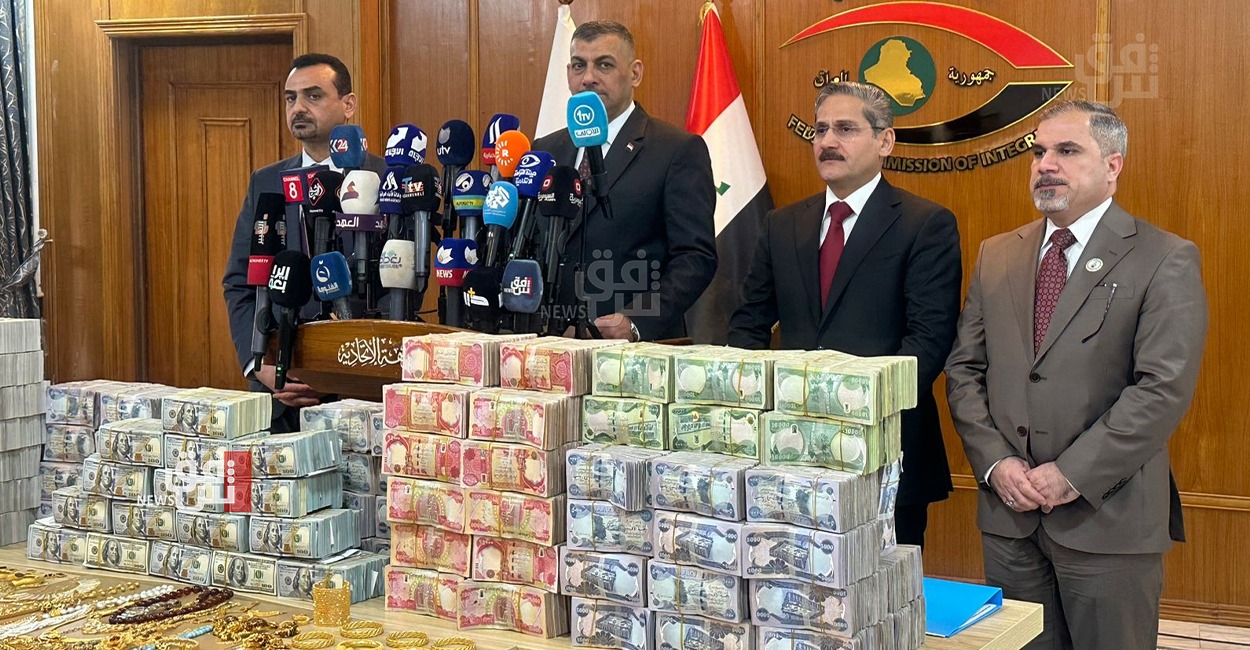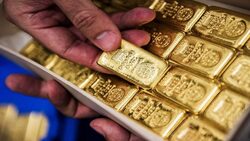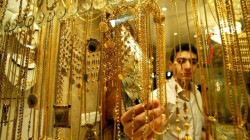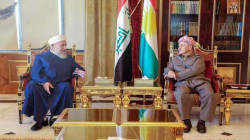Iraq's top anti-corruption commission recovers billions and gold artifacts

Shafaq News/ The Iraqi Integrity Commission (COI) revealed the recovery of billions of dinars, hundreds of thousands of dollars, and valuable gold artifacts from government officials involved in corruption cases.
During a press conference held on Sunday, the Commission's chief, Judge Haider Hanoun, disclosed that $1,630,000 had been recovered due to an "unjust gain" accumulated by Raad Qasim Mohammed Ali, the former Director of the Economic Department at the Ministry of Electricity. Additionally, gold artifacts were found during the investigation.
Hanoun added, "1,843 million dinars were recovered from the detainee in Maysan office, Ala'a Shuhi Abu Ali Al-Saadi, who held the position of Director of the Individuals Accounts Department in Maysan Company."
In a separate case, $250,000 was recovered as rent for a hospital located in the Daoui area belonging to Mohammed Hanash Mahmoud, the former Director of Traibeel Border Crossing, currently serving a severe imprisonment sentence of five years.
Furthermore, the Commission recovered 42 million dinars from the wife of Osama Joudat, the former Director of taxes, who faced tax evasion charges. Hanoun clarified that the seized funds resulted from embezzlement rather than tax theft.
In the same context, the Criminal Court of Najaf delivered a verdict on Sunday, imposing a 15-year prison sentence on the former accounts manager of the Najaf Execution Directorate.
According to the Media Center of the Supreme Judicial Council, the decision is based on charges of orchestrating counterfeit bonds and embezzling financial sums in collaboration with others.
It is noteworthy that financial corruption remains a significant challenge in Iraq, with Transparency International ranking the country 154 out of 180 in the 2023 Corruption Perceptions Index (CPI).
The country also ranked fourth as the most corrupt in the Arab World after Syria, Yemen, Sudan, and Libya.
Various forms of corruption, including bribery, embezzlement, nepotism, and influence peddling, have a detrimental impact on the Iraqi economy, leading to a lack of basic services, increased poverty, and political instability.
The pervasive corruption within the Iraqi state has resulted in the misappropriation of untold billions from its oil wealth over the years.
After assuming his position, PM Al-Sudani pledged to "combat corruption" in the government institutions; so far, many officials have been referred to the judiciary but still, many others are protected by political and sectarian parties.
Last week, Al-Sudani issued three new to enhance the anti-corruption efforts and the internal audit work in the government institutions as part of the government's strategy to fight and prevent corruption. His media office stated that the directives aim to address the threats that corruption poses to government institutions and the public services that the citizens receive, to improve the internal audit work in the government institutions, and integrate its role with the role of the Federal Board of Supreme Audit, the Federal Commission of Integrity, and the law enforcement agencies.





